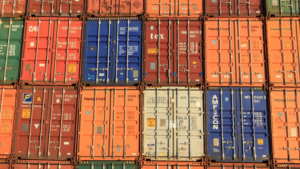The landscape for agriculture and trade has always been complex, but recent political moves south of the border have turned up the heat. As Seeds Canada policy director Lauren Comin puts it, “It’s chaotic, unpredictable, and difficult to plan for.”
With changes coming fast and furious, the Canadian seed sector finds itself balancing caution and action while monitoring every ripple effect.
“We’re listening to everyone,” she says. “But what’s coming from south of the border, from President Trump, is definitely causing concern. One moment, it’s an executive order; the next, he says something in a press conference. It’s hard to know which direction to focus on.”
A perfect example of this unpredictability is Trump’s proposed studies and deadlines on trade deficits and tariffs. His promised tariffs didn’t materialize on Monday. He now says he’ll implement them Feb. 1.
“We know there’s supposed to be a study wrapping up in April, where the U.S. government will examine trade deficits and base its decision on that. But Trump has also mentioned this February timeline in the press. How much weight do we give to those comments? It’s anyone’s guess,” Comin says.
This uncertainty leaves Canadian businesses scrambling for answers. Even if seed isn’t a direct target, the industry can’t escape the ripple effects, Comin says.
“Packaging, seed treatments, machinery—all of these are tied to trade policies. And for sectors like pulses, forage, turf, and rye, where exports to the U.S. are significant, the stakes are even higher.”

Counter-Tariffs and the Domino Effect
The talk of counter-tariffs adds another layer of complexity. “The danger lies in how our governments respond. If lumber is hit, we could counter with agricultural products. And once that starts, it snowballs. Even if seed isn’t explicitly targeted, the whole value chain feels the impact.”
It’s not just about goods crossing borders, Comin adds.
“Think about labour. Temporary foreign workers play a role in Canadian agriculture. If the U.S. changes its policies that result in worker shortages, it impacts labour here, too.”
Trump’s approach, marked by executive orders and swift decisions, creates a whirlwind.
Seeds Canada is stepping up to navigate this uncertainty, Comin adds. Today it announced it is joining the Canadian Agri-Food Trade Alliance (CAFTA). CAFTA is a coalition of national organizations that support a more open and fair international trading environment for agriculture and agri-food.
Through this partnership, Seeds Canada will be able to access information, contribute to broader industry strategy and leverage CAFTA’s influence, Comin says.
“That’s new for the seed sector—it’s about leveraging influence, building partnerships, and recognizing our interconnected value chain.”
The stakes are high, and Seeds Canada understands the need for a measured approach.
“We can’t afford to be reactionary or give premature advice to our members. Triggering a major business decision on shaky information is a risk we’re not willing to take. At the same time, we can’t downplay the potential impacts either,” Comin says
“Our customer’s success is tied to our success. If they’re profitable, the entire value chain benefits. That’s why it’s critical to think holistically about these challenges.”
Comin adds that as the dust settles on a turbulent first week of new U.S. policies, the Canadian seed industry is bracing itself for what’s next. “It hasn’t fully sunk in yet. But one thing is clear: we’re all in this together, and we’re prepared to adapt as a unified sector.”













